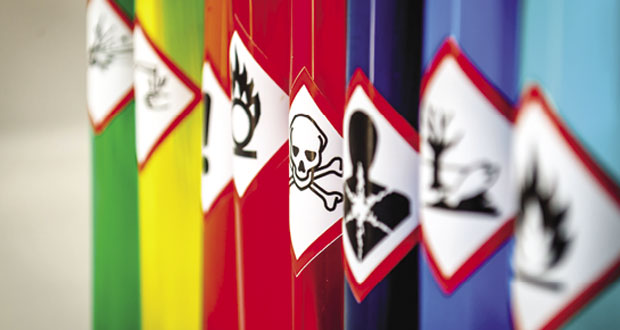The experts from Adler and Allan offer some insights into the range of macro-economic events that may have an impact on environmental management operations in 2021
The world remains in crisis as the Coronavirus pandemic continues to rage and climate change action gathers pace. Closer to home preparation will turn to action now Britain has left the EU, resulting in several overnight changes to regulation. Industries will use 2021 to prepare for the new Environment Bill which will come into force in 2022, introducing legally binding targets for nature, water, air, and waste. Finally, changes in red diesel legislation due in 2022 will require industries to switch fuels and plan new maintenance regimes in 2021 to ensure they are prepared.
Let’s start with Brexit and the impact on chemical manufacturing and import.
REACH, BY BILL ATKINSON, CHIEF SCIENTIFIC ADVISER
The legislation governing chemical supply will switch from EU REACH to UK REACH after Brexit. Registration, Evaluation, Authorisation and Restriction of Chemicals (REACH) applies to chemical substances manufactured or imported into the European Union in quantities of one tonne or more per year. It requires manufacturers, importers or distributors of chemicals to register them with the European Chemicals Agency or ECHA, otherwise they cannot legally be imported, manufactured or supplied.
Registration with UK REACH after Brexit is likely to follow closely the process under EU REACH. However, as a UK-based storage facility, if you handle chemicals going to or coming from European countries, the products may well have to comply with both the UK and EU versions of REACH.
It is the responsibility of individual companies to assess their operations and decide whether they need to comply with both the UK and EU regimes, or just one.
Brexit
It has been widely reported that a no deal Brexit will not impact fuel supply, but it could impact the routine delivery of food and medicines. The UK imports 40 per cent of its food, with around a third coming from EU member states. It is believed that up to 60 per cent of hauliers might not have the correct paperwork on 1st January. This will inevitably cause disruption, however, ensuring your fuel infrastructure is safe and compliant will leave you free to focus on the paperwork required to navigate Brexit.
ONGOING PANDEMIC, BY BRYAN CHERRY, ENVIRONMENTAL RISK SURVEY MANAGER
Environmental risks from business operations are present regardless of the current pandemic. However, the changes brought about by the pandemic can contribute to increasing the likelihood of an incident occurring and, therefore, making the associated risks greater.
Some of these changes include key staff absences, irregular staff presence on site, increased workload/outputs and irregular stopping and restarting.
These challenges could lead to an increase in leaks and spills and a greater impact from incidents as they might not be identified as quickly or responded to as effectively.
Having an emergency response contractor who is familiar with your operations will ensure that if an incident does happen, it can be dealt with swiftly and compliantly.
Maintenance issues on sites
The same challenges could also mean that maintenance schedules get overlooked and as equipment is used sporadically, this could result in more maintenance issues. Having an environmental risk reduction specialist contracted to ensure your maintenance regime continuity isn’t interrupted will ensure your operation remains safe and compliant and will help give you one less thing to worry about during this difficult period.
ENVIRONMENT BILL, BY MATTHEW HUMPHREYS, NATIONAL ACCOUNT MANAGER
The UK will introduce new legally binding nature, water, air, and waste targets from 2022. The Environment Bill will set out the Government’s ambition to ensure the environment is protected following the UK’s departure from the EU.
The introduction of the Environment Bill will enhance wildlife, tackle air pollution, transform how the UK manages its resources and waste, and improve the resilience of water supplies. The targets imposed will impact industries in different ways. Regulated industries such as the water companies have already been put under huge pressure to reduce spend throughout the current Asset Management Plan Cycle (AMP) 7 cycle. However, the Environment Bill will drive requirements for wholesale improvements in assets such as bund and drainage installation and maintenance across estates in order to achieve a greater level of environmental protection.
Businesses need to first identify their environmental risks. A strategic programme of remediation works can then be scheduled based on the level of priority that will help meet the requirements of the Bill. We will be working with all our customers in 2021 to help understand their specific challenges with regards to the potential new targets and how they can achieve them effectively and compliantly.
CHANGES TO RED DIESEL LEGISLATION, RUSSEL RHODES, SPECIALIST FUELS DIVISION BUSINESS DEVELOPMENT
In the 2020 budget, the government announced that it will remove the entitlement to use red diesel from April 2022, except in agriculture (as well as forestry, horticulture and pisciculture), rail and for non-commercial heating (including domestic heating). These reforms are important for tackling climate change and improving the UK’s air quality.
Many sites still use red diesel for back-up power generation which will need to be replaced with white diesel before 2022. There will be an immediate cleaning requirement for these tanks and companies will need to consider adjusting their tank maintenance schedules to adapt to the new diesel formulations.
Companies using red diesel across their sites will need to start planning to switch fuels, and to ensure operational continuity, should consider changes required in tank cleaning and maintenance regimes.
A CHALLENGING YEAR
No one can deny that 2021 is going to be a challenging year. However, with planning and the right partners you can reduce downtime and ensure your operation remains compliant while you focus on getting business done.





